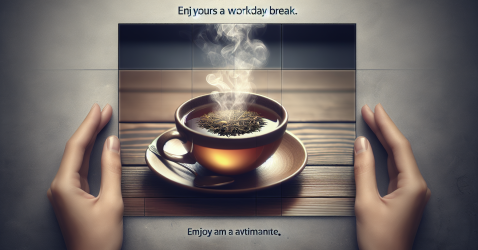What Are Simple Self-care Activities For Reducing Daily Stress?
In the fast-paced world we live in, it’s crucial to incorporate self-care activities into our daily routines to alleviate the burden of stress. Whether it’s taking a moment to enjoy a hot cup of tea, immersing yourself in a captivating book, or engaging in a brisk walk outdoors, simple activities can make a significant difference in reducing the strain of daily life. Discover the power of self-care and say goodbye to overwhelming stress.
Physical Activities
Exercise
Engaging in regular exercise is a fantastic way to reduce daily stress and improve your overall well-being. Whether it’s going for a run, hitting the gym, or taking a group fitness class, exercise releases endorphins in your brain that boost your mood and reduce stress. It also helps you stay physically fit, which has numerous health benefits. So put on those workout clothes and get moving! You’ll feel the stress melt away.
Yoga
Yoga is not only a physical activity but also a practice that promotes mental calmness and relaxation. The combination of stretching, deep breathing, and mindfulness helps you release tension in your body and find inner peace. Through different poses and flow sequences, yoga allows you to connect with your breath and bring your focus to the present moment. It’s an excellent practice for reducing stress and increasing flexibility and strength.
Sports
Engaging in sports is not only a great way to stay fit but also an opportunity to relieve stress and have fun. Whether you choose team sports like basketball or soccer or individual sports like tennis or swimming, the physical activity involved helps your body release built-up stress and tension. Additionally, participating in sports allows you to socialize and engage with others, fostering a sense of community and connection.
Mental Activities
Meditation
Meditation is a powerful tool in reducing daily stress and achieving mental clarity. By focusing your attention and eliminating the clutter in your mind, meditation helps you find calmness and peace. You can start with just a few minutes a day, sitting in a quiet space and observing your breath. As you practice regularly, you’ll notice an increased ability to handle stress more effectively and develop a greater sense of well-being.
Deep Breathing
Deep breathing is a simple yet effective technique for reducing stress and promoting relaxation. By taking slow, deep breaths, you activate your body’s relaxation response and lower your heart rate and blood pressure. It’s a practice you can do anywhere, anytime, whether you’re sitting at your desk or lying in bed. So whenever you feel stressed or overwhelmed, take a few moments to focus on your breath and bring yourself back to a state of calm.
Journaling
Writing your thoughts and feelings down on paper can be a therapeutic way to deal with daily stress. Journaling allows you to process your emotions, gain clarity, and alleviate anxiety. It’s a private space where you can express yourself freely without judgment. Try writing about your day, your worries, or any challenges you’re facing. You might be surprised by how much it helps to transfer your thoughts from your mind to the page.
Relaxation Techniques
Taking a Bath
There’s nothing quite like a warm bath to relax both your body and mind. Fill up your tub with your favorite bath salts or essential oils and soak away your stress. The warm water helps to soothe your muscles and relieve tension, while the quiet and peaceful environment provides a mental break from the outside world. Add some calming music or candles to enhance the experience and truly indulge in this relaxing self-care activity.
Listening to Music
Music has a powerful impact on our mood and emotions. By listening to soothing and calming music, you can effectively reduce stress and create a peaceful atmosphere. Develop a playlist of your favorite relaxing songs or explore genres such as classical or instrumental music known for their calming effects. Sit back, close your eyes, and let the melodies carry you away from the stresses of the day.
Reading a Book
Immersing yourself in a good book is an excellent way to escape from the pressures of daily life and unwind. Whether it’s a fictional novel, a self-help book, or a memoir, reading can transport you to different worlds and give you a mental break from stress. Find a quiet and cozy spot, grab your favorite book, and let yourself get lost in the pages. You’ll not only relax but also expand your knowledge and imagination.
Social Interactions
Meeting Friends
Spending time with friends can be a wonderful way to reduce stress and bring joy into your life. Plan a meet-up with your closest pals for a coffee date, a walk in the park, or a movie night. Sharing laughs, engaging in meaningful conversations, and enjoying each other’s company can provide a much-needed respite from the pressures of daily life.
Joining a Support Group
Sometimes, talking to others who have had similar experiences or challenges can be immensely helpful in managing stress. Joining a support group allows you to connect with people who understand what you’re going through, providing you with a safe space to share your thoughts and emotions. Together, you can offer each other support, advice, and encouragement, creating a strong network of like-minded individuals.
Having a Conversation
Engaging in a meaningful conversation with someone you trust can provide relief from daily stress. Simply talking things out and sharing your thoughts and feelings can help lighten your mental load. Reach out to a close friend, family member, or therapist and schedule a time to have a heart-to-heart conversation. You’ll find solace in knowing that you’re not alone and that others care about your well-being.
Nature Connection
Going for a Walk
Spending time in nature has been shown to have numerous benefits for our mental and physical well-being. Going for a walk in a park, forest, or by the beach allows you to connect with the natural world and breathe in fresh air. It provides a break from the hustle and bustle of everyday life and an opportunity to slow down and appreciate the beauty around you. Take off your shoes and feel the earth beneath your feet as you immerse yourself in the tranquility of nature.
Gardening
Getting your hands dirty in the garden is not only a rewarding hobby but also a fantastic way to reduce stress. Whether you have a large backyard or a small balcony, gardening allows you to connect with nature and nurture plants. The act of planting, pruning, and caring for plants can be meditative and calming. Plus, the beauty of watching your garden thrive can be incredibly satisfying and fulfilling.
Sitting in a Park
Sometimes, all you need is a moment of stillness in a peaceful setting to alleviate stress. Find a quiet spot in a nearby park, sit on a bench or a blanket, and take in the sights and sounds around you. Observe the trees, listen to the birds chirping, and let yourself be fully present in the moment. This simple act of connecting with nature can do wonders for your well-being and help you recharge.
Creative Expressions
Painting
Engaging in creative activities such as painting provides an outlet for self-expression and allows you to tap into your imagination. Whether you’re an experienced artist or a beginner, painting can be a therapeutic and relaxing activity. Put your thoughts and emotions onto the canvas, choose colors that resonate with you, and let your creativity flow. The process of painting can help you release stress and create something beautiful in the process.
Writing
Putting pen to paper (or fingers to keyboard) and writing can be a cathartic way to reduce daily stress. Whether it’s journaling, writing poetry, or working on a novel, writing allows you to express yourself and explore your thoughts and feelings. It’s a form of self-reflection and introspection that can bring clarity and understanding. So grab a notebook or open a blank document and let your words flow freely.
Playing an Instrument
Playing a musical instrument is not only a fun and enjoyable activity but also a means of stress relief. Whether it’s strumming a guitar, playing the piano, or blowing into a flute, the act of creating music allows you to focus your mind and channel your emotions. Playing an instrument can transport you to a different state of mind and provide a sense of calm and relaxation.
Mindfulness Practices
Body Scan
A body scan is a mindfulness practice that involves bringing your attention to different parts of your body from head to toe, noticing sensations without judgment. This practice helps you bring awareness to areas of tension or discomfort and release them, promoting relaxation and reducing stress. Lie down in a comfortable position, close your eyes, and slowly scan your body, paying attention to sensations and allowing yourself to let go of any tension you may find.
Walking Meditation
Walking meditation combines the benefits of physical activity and mindfulness. Instead of rushing from one place to another, take a slower pace and focus your attention on the sensation of walking. Notice the movement of your feet, the shift of your weight, and the rhythm of your breath. By being fully present in each step, you can quiet your mind and reduce stress while still enjoying the benefits of being physically active.
Eating Mindfully
Mindful eating is a practice that involves paying full attention to the experience of eating, from the taste and texture of the food to the sensations in your body. By savoring each bite and eating slowly, you can cultivate a deeper connection with your food and increase your enjoyment of eating. This practice not only reduces stress but also promotes healthier eating habits and a greater appreciation for the nourishment your food provides.
Stress Relief Tips
Getting Enough Sleep
Getting adequate sleep is crucial for overall health and well-being, as it allows your body and mind to rest and recharge. Lack of sleep can significantly contribute to stress levels and make it more difficult to cope with daily challenges. Aim for 7-9 hours of quality sleep each night and establish a regular sleep routine to ensure you’re giving your body the rest it needs.
Limiting Caffeine Intake
While a cup of coffee may give you a temporary energy boost, consuming too much caffeine can contribute to increased levels of stress and anxiety. Limit your intake of caffeinated beverages like coffee, tea, and energy drinks, especially in the late afternoon and evening. Instead, opt for herbal teas or decaf options to support a calmer state of mind.
Scheduling Relaxation Time
In the midst of a busy schedule, it can be easy to neglect self-care and relaxation. Make it a priority to schedule dedicated relaxation time for yourself each day. Whether it’s taking a short break to meditate, listen to calming music, or engage in a favorite hobby, giving yourself this time will help reduce stress and promote a sense of balance in your life.
Healthy Habits
Eating Well
Maintaining a balanced and nutritious diet is essential for overall health and well-being. Incorporate a variety of fruits, vegetables, whole grains, lean proteins, and healthy fats into your meals to support your body’s needs. A well-nourished body is better equipped to handle stress and function optimally, both physically and mentally.
Drinking Plenty of Water
Staying hydrated is a simple yet often overlooked aspect of self-care. Dehydration can contribute to feelings of fatigue and stress. Aim to drink at least 8 glasses of water each day to keep your body properly hydrated and support your overall well-being.
Avoiding Excessive Alcohol or Drug Use
While it may be tempting to turn to alcohol or drugs as a temporary escape from stress, these substances can actually worsen the situation in the long run. Instead of relying on these unhealthy coping mechanisms, seek healthier alternatives to reduce stress and manage your emotions effectively.
Wellness Activities
Pampering Yourself
Taking time to pamper yourself is an important act of self-care. Whether it’s treating yourself to a relaxing massage, a soothing facial, or a DIY spa day at home, indulging in self-care activities can provide a much-needed break from the stresses of daily life and boost your overall well-being.
Taking Breaks
In today’s fast-paced world, it’s easy to forget the importance of taking regular breaks. Allow yourself short breaks throughout the day to rest and recharge. Whether it’s stepping outside for a breath of fresh air, stretching your body, or simply closing your eyes for a few minutes, these pauses can promote relaxation and rejuvenation.
Setting Boundaries
Setting boundaries is crucial for maintaining a healthy work-life balance and reducing stress. Learn to say no when you feel overwhelmed and ensure that you have time for yourself and your well-being. By setting clear boundaries and prioritizing self-care, you can create a more balanced and fulfilling life.
In conclusion, incorporating these simple self-care activities into your daily routine can help reduce stress and promote a greater sense of well-being. From engaging in physical activities to practicing mindfulness and indulging in relaxation techniques, there are numerous ways to take care of your body and mind. Remember to prioritize self-care and make time for yourself amidst the demands of daily life. Your well-being deserves it!

















